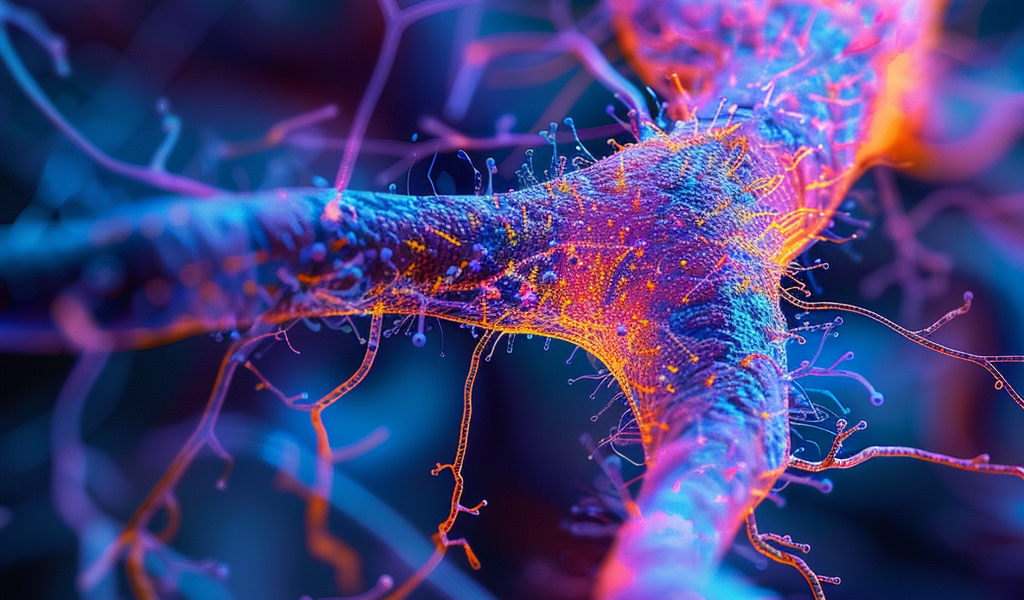Recent research conducted by a team of scientists at the University of Cologne’s CECAD Cluster of Excellence in Aging Research has shed light on the role of enhanced mitochondrial fusion in fueling nerve cell function and plasticity. The study, titled ‘Enhanced mitochondrial fusion during a critical period of synaptic plasticity in adult-born neurons,’ was recently published in the journal Neuron.
Nerve cells, or neurons, are known for their complexity, which they achieve during development by extending ramified branches called dendrites and axons, and establishing thousands of synapses to form intricate networks. While the production of most neurons is confined to embryonic development, certain brain regions are endowed with neurogenesis throughout adulthood. The researchers aimed to understand how neurons born in these regions successfully mature and remain competitive to exert their functions within a fully formed organ.
Using a combination of imaging, viral tracing, and electrophysiological techniques in mouse models, the researchers found that as new neurons mature, their mitochondria along dendrites undergo a boost in fusion dynamics to acquire more elongated shapes. This process is crucial in sustaining the plasticity of new synapses and refining pre-existing brain circuits in response to complex experiences.
The study’s findings have significant implications for brain repair approaches during disease, as understanding these processes could offer potential insights for treating neurodegenerative and depressive disorders. The research suggests that the pace of mitochondrial fusion in the dendrites of new neurons controls their plasticity at synapses, rather than neuronal maturation per se.
The study’s lead researcher, Professor Dr. Matteo Bergami, expressed surprise at the findings, stating, ‘We were surprised to see that new neurons actually develop almost perfectly in the absence of mitochondrial fusion, but that their survival suddenly dropped without obvious signs of dysfunction.’
This groundbreaking research provides valuable insights into the intricate mechanisms underlying nerve cell function and plasticity, offering new avenues for potential therapeutic interventions in neurological disorders. The study’s findings contribute to the growing body of knowledge on the role of mitochondria in neuronal development and function, paving the way for future research and potential clinical applications.





